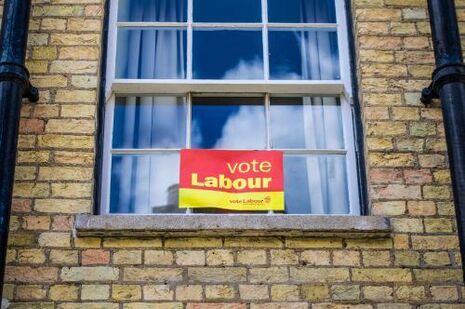The narrow minded failures of the Left
Wonder why the Left was defeated? Don’t blame the Tories, says Alastair Benn

The Left has now become a group defined by rigid groupthink, wholly divorced from the great and enlightened radical tradition of these islands.
The Labour party has limited itself to shouting loudest about several disparate but emotive issues. Throughout the election, constantly hammered home were messages about the Bedroom Tax, cuts to disability benefit and food banks – a manifesto tailored almost entirely to the concerns of the urban poor.
As the Tories have become a party of the South, Labour is increasingly becoming a party limited to the urban areas of the North, and London, with little to no relevance for millions of voters in middle England, rural areas and Scotland. Even in their traditional heartlands, core support is being steadily eaten away by Ukip, with its old-fashioned protectionism, coupled with a far-right anti-immigration agenda.
After the Election, my Facebook and Twitter accounts were filled with hysterical reactions to the defeat. In part, this was fostered by the narrow base on which Ed Miliband campaigned; a series of issues coloured by highly metropolitan concerns.
What Tony Blair did very well was to mix language that had a broad appeal (repeating words like “aspiration”, or something similarly bland) with specific policies that could either attract people, or push them away. He managed to put voters in a position where they could disagree with the Labour party in certain respects, but were perfectly willing to vote for it. Even if you disagreed with his stance on say the minimum wage, the mood music of the whole was enough to convince.
Ed Miliband’s language, however, seemed almost deliberately designed to militate against the formation of a broad base of public opinion. Elections are won from the centre, by appealing to voters who might otherwise have voted for the other guys. Simple. They are won by parties ready to mix ideology with pragmatism.
It is now difficult to point the way forward for the Labour party. Increasingly deprived of the core support that gave it a purpose in the first place, its leadership mired in old battles defined by the poisonous personal divisions between Blair and Brown, Labour appears divided, weak at the top and weak at the base. The election of Andy Burnham – or even Yvette Cooper – would represent a return to leadership set along the fault lines of the past.
The party need to develop a sustained and coherent critique of the Conservatives, who seek to integrate their successes in education and welfare into an alternative overriding narrative. Shadow Education Secretary Tristram Hunt has shown an attractive willingness to do so, saying, “we can only achieve a Labour government if we can combine a compassionate story about supporting those who need it most with a sense of optimism and hope for those who aspire to climb life’s ladder”.
Labour must become less insular, ready to reach out beyond its traditional power base. You may hate the elitism of the Conservative party. You may hate that its leadership seems to be almost exclusively led by men from a particular background. You may hate its politics. Yet more people in the country voted for the Conservatives over Labour. Why? What are you going to do about it? Don’t blame the Tories for winning the election – blame Labour for losing it.
 Features / Are you more yourself at Cambridge or away from it? 27 January 2026
Features / Are you more yourself at Cambridge or away from it? 27 January 2026 News / Vigil held for tenth anniversary of PhD student’s death28 January 2026
News / Vigil held for tenth anniversary of PhD student’s death28 January 2026 Interviews / Lord Leggatt on becoming a Supreme Court Justice21 January 2026
Interviews / Lord Leggatt on becoming a Supreme Court Justice21 January 2026 Comment / College rivalry should not become college snobbery30 January 2026
Comment / College rivalry should not become college snobbery30 January 2026 News / Reform candidate retracts claim of being Cambridge alum 26 January 2026
News / Reform candidate retracts claim of being Cambridge alum 26 January 2026








